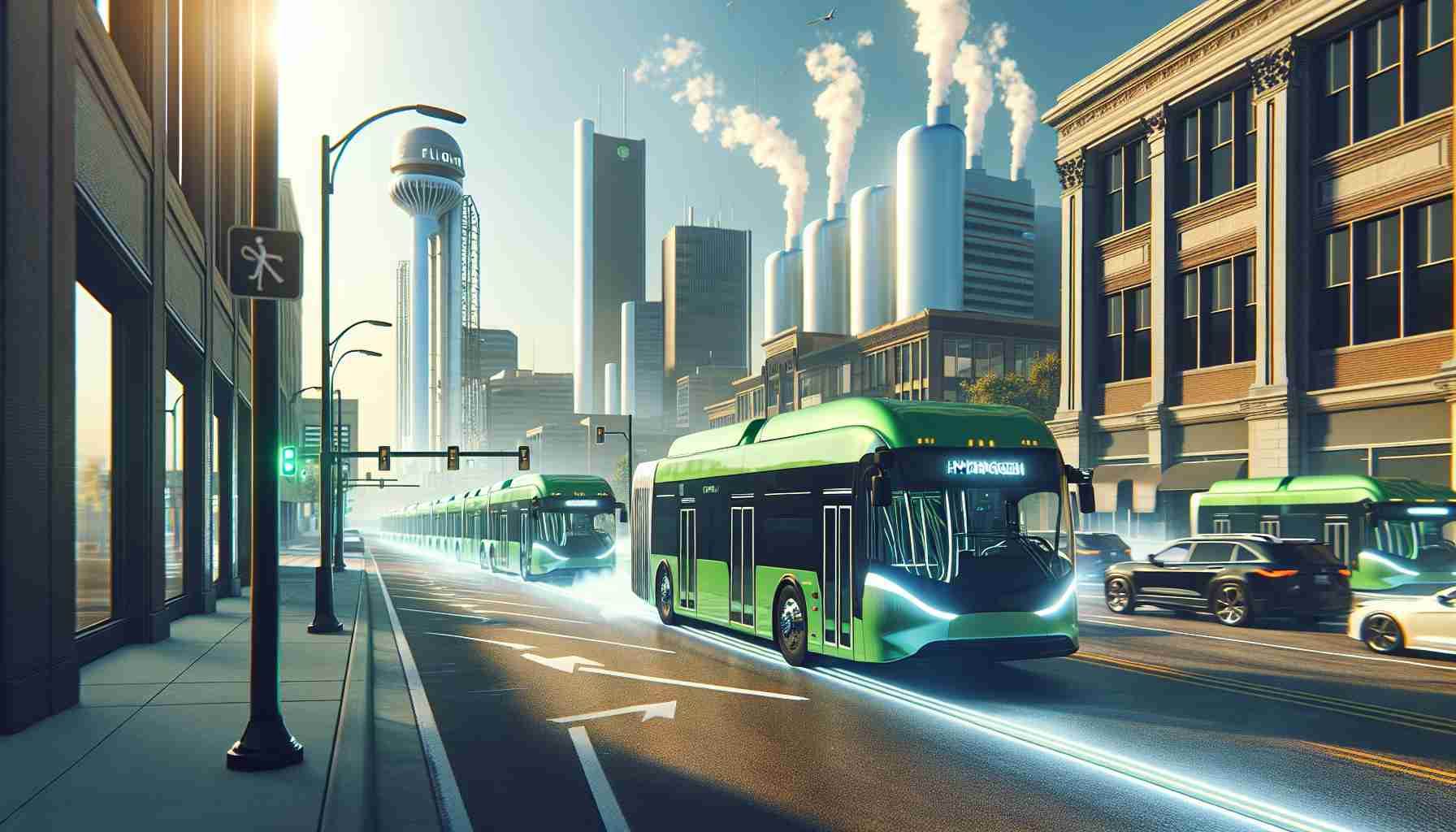In an exciting development for sustainable transport, Flint’s Mass Transportation Authority has secured a significant injection of $11 million to enhance its eco-friendly bus system. This substantial funding aims to not only expand its fleet of cutting-edge fuel-cell buses but also to bolster its hydrogen production capabilities, marking a transformative step towards green urban transit.
Governor Gretchen Whitmer underscored the importance of this investment, highlighting Michigan’s commitment to leading in clean energy innovations. The announcement was part of a broader initiative, where the Midwest Alliance for Clean Hydrogen (MachH2) garnered $22.2 million from the U.S. Department of Energy. This collaboration emphasizes a collective effort in advancing sustainable hydrogen infrastructure across the region.
The ambition of the project is to turn Flint into a model city for clean transportation, reducing reliance on fossil fuels and emitting fewer pollutants. By expanding the hydrogen fuel infrastructure, the city is paving the way for a cleaner, more sustainable future, where public transportation plays a central role.
This infusion of funds is set to significantly benefit both the local community and the environment by providing an improved transit experience that prioritizes sustainability. As Flint heads toward this green transition, residents can expect a ripple effect of positive changes, from improved air quality to the creation of green jobs. This investment not only reflects a commitment to modernizing public transport but also reinforces Michigan’s strategic plans to lead in the nationwide shift towards sustainability.
Unveiling the Hidden Impact: How Flint’s Green Transit Transformation Could Reshape Lives
The recent infusion of $11 million into Flint’s eco-friendly bus system is making headlines, but what does it mean for the average citizen and the larger community? Beyond the sheer innovation, this investment is set to cascade through countless aspects of everyday life, offering a glimpse into the future of urban living.
What Are the Bigger Implications for the Community?
The move towards clean hydrogen fuel-cell buses isn’t just about ticking sustainability boxes. It’s a bold step that could fundamentally alter public transportation’s role in urban areas. By betting on hydrogen, Flint is poised to see a ripple effect of benefits:
1. Improved Health and Wellness: Emissions from diesel public transportation have been linked to respiratory issues and other health ailments. The shift to hydrogen means cleaner air, potentially reducing medical costs and improving community health.
2. Job Creation in the Green Sector: The transition isn’t just good for the environment; it’s also an economic catalyst. As hydrogen infrastructure expands, so do opportunities for jobs in manufacturing, maintenance, and engineering sectors associated with green technology.
3. Positioning Michigan as a Leader in Green Innovation: By spearheading such initiatives, Michigan is not only improving local infrastructure but also acquiring cutting-edge technology and expertise. This positions the state as a frontrunner in the sustainable energy sector on both national and global fronts.
Interesting Facts and Controversies
While Flint’s leap into the hydrogen era appears seamless, it’s not without its debates:
– Hydrogen Production: Producing hydrogen can be energy-intensive, and critics argue about the net environmental impact, especially if the energy to produce it comes from non-renewable sources. How Flint manages to source green hydrogen will be pivotal in silencing critics.
– Cost vs. Benefit: While initially costly, the long-term savings and environmental benefits could justify the expenditure. Will these buses prove their worth, or will the costs outweigh the benefits?
– Scale of Implementation: While $11 million is a substantial investment, scaling this model to other cities could require significantly more funds and adjustments in urban planning.
Related Questions Answered
What makes hydrogen buses more sustainable than electric buses?
Hydrogen buses offer longer ranges and quicker refueling compared to battery-electric buses. This can be especially beneficial in routes covering large areas without frequent charging facilities. However, the choice between hydrogen and electric remains context-dependent, needing an assessment of local resources and needs.
How will Flint manage to balance the initial costs with future savings?
Initial investments are hefty, but operational savings from reduced fuel costs and maintenance—along with federal and state subsidies—can tip the balance in favor of hydrogen buses in the long run.
What can residents expect in terms of everyday life changes?
Aside from cleaner air, residents may experience equitably improved public services as the city reinvests in widespread infrastructure development. These changes often lead to an enhanced quality of life and community well-being.
For those eager to explore more about hydrogen technology and sustainable transit options, reputable sources can be found online, such as U.S. Department of Transportation and U.S. Department of Energy.
In conclusion, while the road to a fully hydrogen-powered bus system in Flint is fraught with challenges, the potential changes in community health, environmental impact, and economic opportunity paint a promising picture. As Michigan leads the charge, the eyes of the nation, and indeed the world, will be watching Flint as it navigates this green revolution.









